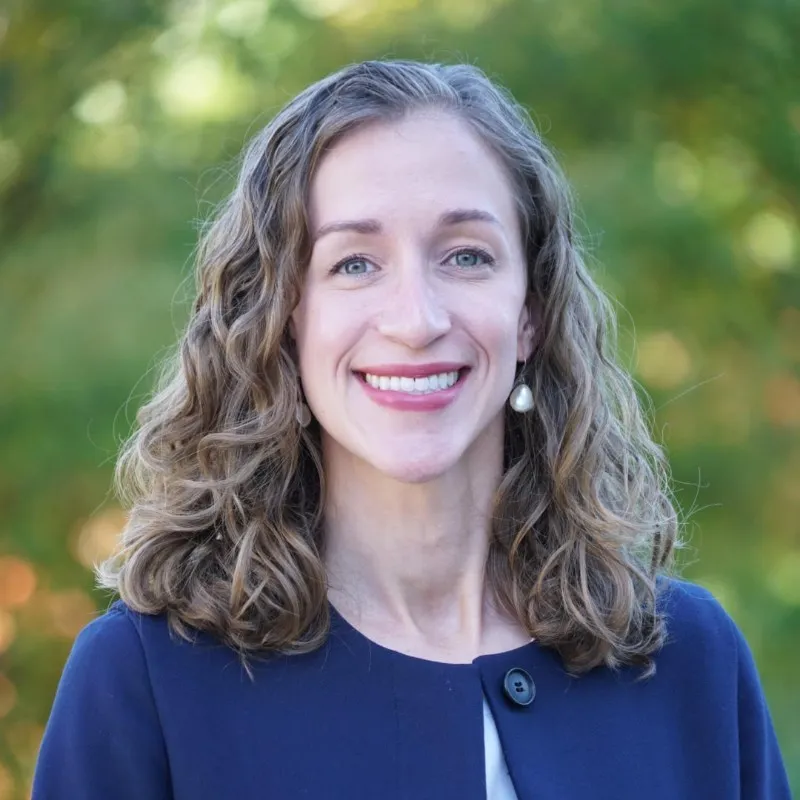Story originally published in Medium.
Amelia Muller is always looking for ways to improve life for the people who call Birmingham home.
With her expertise in civic engagement and her focus on innovation, The World Games offered a perfect proving ground for Muller and her team to think about the ways temporary services during the event might create lasting improvements for the city and its residents.
Muller is the City of Birmingham’s civic design principal, a role that sits at the intersection of economic development, urban planning and civic innovation.
So Muller’s team — which included three college interns and two FUSE Corps fellows — spent a good deal of its time checking out people’s experiences during The World Games, from spectators’ shuttle experiences to merchants’ sales.
“We ended up being eyes and ears on the ground in the less-obvious spaces,” Muller said. “We were out and about throughout The Games, talking with business owners about how things were going, going to City Hall’s satellite office to get a sense of how that was working.”
The satellite office was a temporary spot to give people a way to access city business and finance services during the time when The Games limited access around City Hall.
“We had a dream team of city staff providing services in one place from business licenses and taxes to permits and plan approvals,” Muller said of the satellite operation. “Instead of having people riding elevators at City Hall, going to multiple floors to take care of their business, they could pay their plan review fee and then walk across the room to speak with the plan’s examiner right there.”
Muller’s team learned that this short-term solution could be a model for addressing a longstanding goal for the city — streamlining processes for Birmingham businesses. “Our satellite office staff reported that our customers really enjoyed being in one place,” Muller said.
Muller’s team also gained insight about another longtime goal — enhancing public transit in the city.
“We worked closely with Transportation to understand the user experience of the World Games transit lines,” she said. “We had interns riding the buses to assess how people were using them, and we were out there just about every day putting up additional signage to make sure people knew where to go.”
With multiple venues and security perimeters making parking more difficult, The World Games offered a natural laboratory. “The World Games offered a moment where a lot of residents in our city and from nearby cities were kind of forced to take transit, maybe for the first time,” she said.
Her team found World Games shuttles were well utilized, even in the middle of a weekday, with happy riders across many demographics — black, white, young, old.
“That was exciting to see,” she said. “It was a pilot for what we call park-and-ride. It was an opportunity to develop prototypes that could be applied to everyday transit options like the Magic City Connector and BRT (Bus Rapid Transit) when it comes online.”
And when there were some transportation bumps early on? Muller’s team quickly put together a survey to gather live feedback so it could quickly implement solutions.
Muller’s team also spent time looking at the structures put in place to mitigate challenges The Games’ security perimeters created for unhoused individuals.
A large group of organizations, ranging from the faith community to the architectural profession, came together in advance of The Games to address this issue.
The results of that collaboration included a daytime cooling location operating out of the Faith Chapel Care Center and an overnight cooling station operated by the city.
As Muller and her boyfriend worked at the city’s site several nights, she learned that the issues driving homelessness are as diverse as the “amazing individuals” she met there.
“The lesson for all of us is that every individual’s story is distinct and has many facets, and it’s not going to be any single solution or quick fix,” she said. “We’ve got to be much more dynamic and wrap resources around people.”
In addition to engaging directly with residents during The Games, Muller spent time with a film crew from the Deep South Solidarity Fund, which is a philanthropic effort to resource and highlight economic mobility work in the South.
The crew spent several days during the event, shadowing the mayor and other black leaders, exploring a broad range of topics, from food access to rail crossings to entrepreneurship.
“It was a chance to lift up a range of voices against the backdrop of The World Games, to focus on all these issues we’re all trying to tackle, to explore what it means for Birmingham to be in the spotlight in such a different way than we have traditionally been seen, and to hear from young black leaders pushing us to be better,” Muller said.
No doubt, The Games tested leaders across our region.
But the most important challenge — one that inspires Muller’s team — is how to translate those two weeks in July into lasting changes that make Birmingham an even better place to live, work and play.
